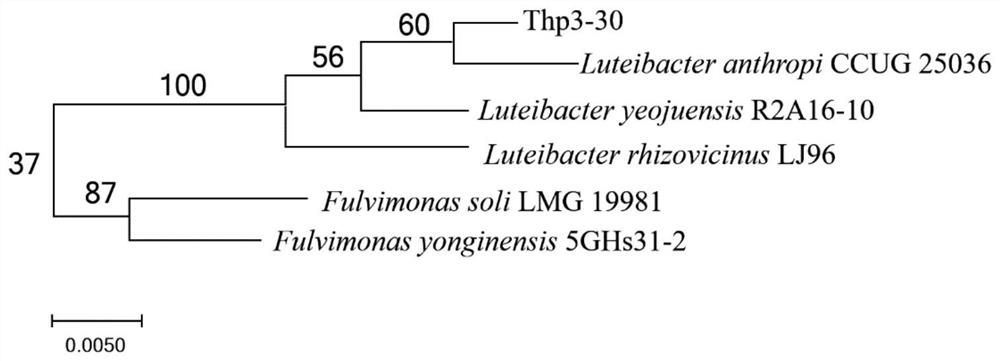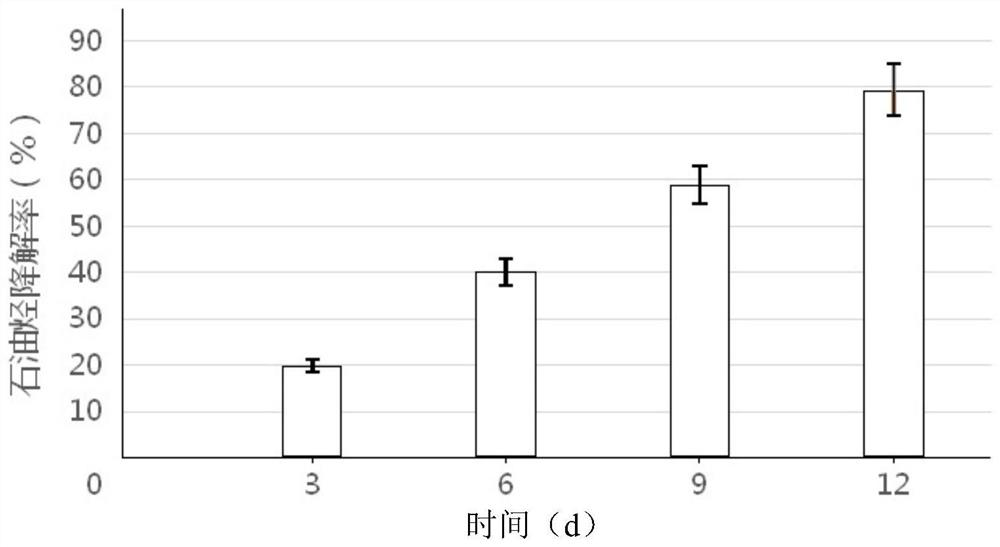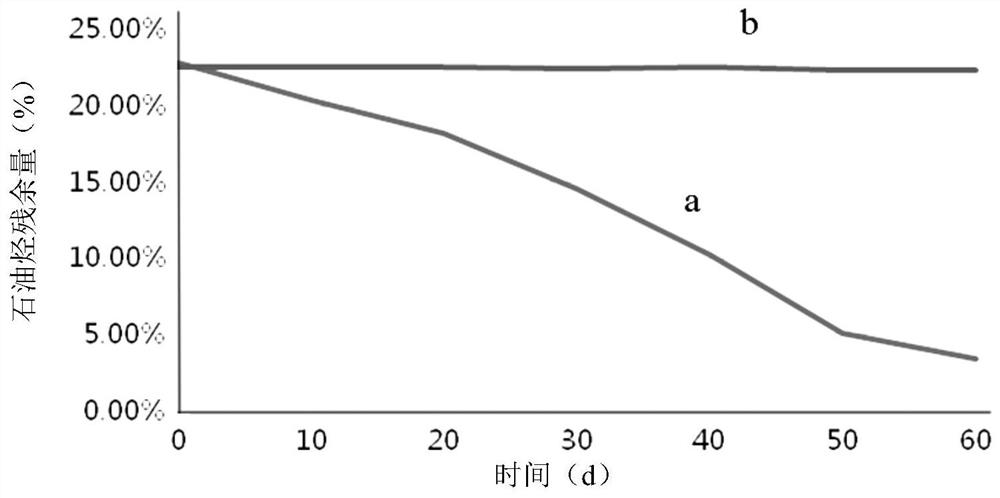A Chromium-Resistant Petroleum Hydrocarbon Degrading Strain thp3-30 and Its Application
A petroleum hydrocarbon degrading bacteria, petroleum hydrocarbon technology, applied in the direction of bacteria, microorganism-based methods, restoration of polluted soil, etc. Solid phase structure and other issues, to achieve the effect of enriching bacterial resources, huge research value and application potential
- Summary
- Abstract
- Description
- Claims
- Application Information
AI Technical Summary
Problems solved by technology
Method used
Image
Examples
Embodiment 1
[0018] Embodiment 1: Morphological characteristics of chromium-resistant petroleum hydrocarbon degrading bacteria (Luteibacter anthropi) Thp3-30
[0019] Streak inoculate a single colony into LB solid medium, place the plate upside down in a constant temperature incubator, and incubate at 28°C for 72h. The bacterium is Gram-negative, rod-shaped and non-spore-forming. The colonies are round, golden yellow and translucent, with smooth and moist surface, regular edges, no halo, raised center, 1.5-2mm in diameter.
Embodiment 2
[0020] Example 2: Screening and identification of chromium-resistant petroleum hydrocarbon degrading bacteria (Luteibacter anthropi) Thp3-30
[0021] (1) On-site collection of soil samples about 5cm below the surface of the petroleum hydrocarbon polluted area of the Macao Power Plant (E113°55′, N22°20′), after preliminary removal of impurities such as grass roots and stones, sent to the laboratory at low temperature for further investigation Analyze and screen the sample source of the target strain.
[0022] (2) Take a 250mL Erlenmeyer flask, wash it, fill it with 90mL deionized water and add 25 glass beads with a diameter of 0.5cm, seal it, and sterilize under high pressure at 121°C for 20min. After the system cooled down to room temperature, put 10.0 g of the aforementioned soil samples into the Erlenmeyer flask in the ultra-clean workbench, re-seal it, and shake it in a constant temperature shaker at 28°C for about 30 minutes to fully release the microorganisms in the soi...
Embodiment 3
[0025] Embodiment 3: the determination of petroleum hydrocarbon degrading ability of chromium-resistant petroleum hydrocarbon degrading bacteria (Luteibacter anthropi) Thp3-30 (1) prepare LB liquid culture medium, and pick the petroleum hydrocarbon degrading bacteria (Luteibacteranthropi) of chromium-resistant on LB solid plate ) A single colony of Thp3-30 is inoculated in LB liquid medium and cultivated overnight, which is Thp3-30 seed solution.
[0026] (2) With 1% as the inoculum size, add the Thp3-30 seed solution into the inorganic salt liquid medium containing 10% crude oil: diesel oil = 1: 1, shake and cultivate at 150rpm, 28°C in a shaker, and take samples every 3d And use the gravimetric method to measure the degradation rate of petroleum hydrocarbons in the culture solution. The experimental period is 15 days. The experimental results are shown in figure 1 .
PUM
| Property | Measurement | Unit |
|---|---|---|
| diameter | aaaaa | aaaaa |
| diameter | aaaaa | aaaaa |
Abstract
Description
Claims
Application Information
 Login to View More
Login to View More - R&D Engineer
- R&D Manager
- IP Professional
- Industry Leading Data Capabilities
- Powerful AI technology
- Patent DNA Extraction
Browse by: Latest US Patents, China's latest patents, Technical Efficacy Thesaurus, Application Domain, Technology Topic, Popular Technical Reports.
© 2024 PatSnap. All rights reserved.Legal|Privacy policy|Modern Slavery Act Transparency Statement|Sitemap|About US| Contact US: help@patsnap.com










